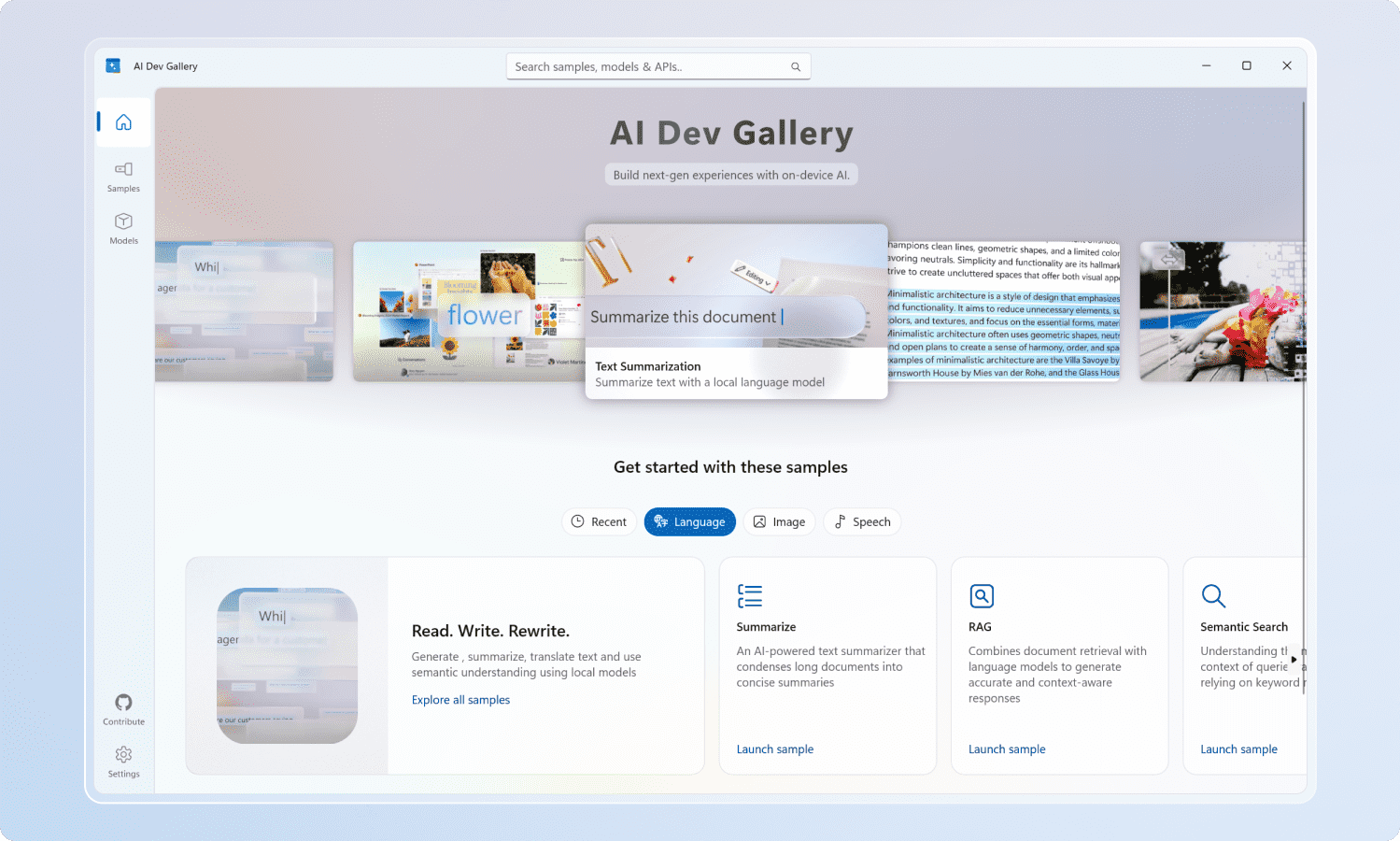
Source: Microsoft
Microsoft has recently introduced an open-source development resource called “AI Dev Gallery” for devices equipped with the Windows 11 operating system and branded as “AI PCs.” This resource enables developers to integrate on-device artificial intelligence functionalities into their applications, offering a versatile toolkit for incorporating various AI models tailored to specific application design needs. Engineered for on-device execution, these resources function seamlessly without requiring an internet connection, delivering faster performance compared to large-scale AI models dependent on network connectivity.
The “AI Dev Gallery” is compatible with applications designed for Windows 10 and Windows 11, as well as architectures like x64 and Arm64. To utilize this support, devices must have at least 16GB of RAM and 20GB of storage space. For more demanding applications requiring higher computational density and speed, pairing the system with a discrete graphics card featuring 8GB of dedicated VRAM is recommended.
While an increasing number of industry players are focusing on large-scale natural language models (LLMs) to provide more natural and immersive AI interaction experiences, these models often rely heavily on stable network connections, making their performance susceptible to internet conditions. In response, many companies are shifting towards developing small-scale natural language models (SLMs). By employing techniques such as fine-tuning and model distillation, these SLMs can achieve performance levels comparable to their larger counterparts in specific use cases, while maintaining greater execution efficiency.
Related Posts:
- Over 200,000 Sites at Risk: Directory Traversal CVE-2024-0221 Vulnerability Hits Photo Gallery Plugin
- Copybara Fraud Campaign Leverages On-Device Fraud and Social Engineering Tactics
- Google Boosts Real-Time Protection Against Scams and Malware on Android Devices